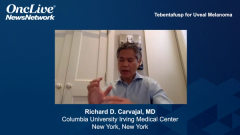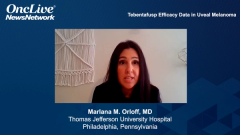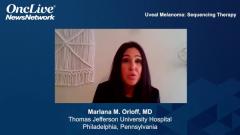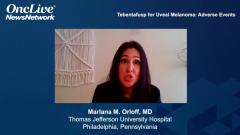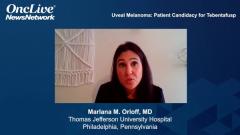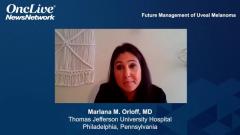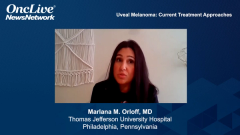
Future Management of Uveal Melanoma
The next steps in research investigating best practices using novel therapies such as tebentafusp as treatment for uveal melanoma.
Episodes in this series

Richard D. Carvajal, MD: Marlana, this has been a great conversation. Let’s close with future directions. Where are we going with tebentafusp? What are the next trials we must do and the next set of questions we have to answer?
Marlana M. Orloff, MD: Teasing out why there is still such a great response in patients whose best overall response is progressive disease is an important question, because again to your comment, can we stop some treatment in these patients? Are these patients who need to continue to be treated beyond progression, or is this something that is durable? We just don’t know because all of our patients who we have treated thus far, if they’re responding, they’ve stayed on therapy. Combinations are always the next natural move whenever you get a drug under your belt. What do we combine this with? Would we combine it with something like immune checkpoint inhibition because of some of the anecdotes and some of the changes we may see at the tumor level? Do we make it multimodality? Are we potentially combining this with things like liver-directed therapy? Those are questions; there may be questions about schedule. Again, weekly treatment for how long? Do you have any other thoughts about where we’re headed with this?
Richard D. Carvajal, MD: The last critical one that we are already in discussions about is the adjuvant trial. For the first time ever we’ve gotten effective systemic therapy in the metastatic setting. So it has to be tested in the adjuvant setting.
Marlana M. Orloff, MD: There is one other piece; this wasn’t compared to Ipi/Nivo [ipilimumab and nivolumab]. Like you said from the outset, in the absence of a clinical trial, lots of patients with metastatic uveal melanoma have been getting combination immunotherapy. If you look even across trials, which are never supposed to do, tebentafusp still looks pretty good. It gives us even more options, this being the first true drug in a uveal-specific randomized trial to show overall survival benefit. It’s amazing for the community and for the patients. It’s an exciting time.
Richard D. Carvajal, MD: Dr Orloff, I could not have said that better myself. That’s a fantastic way to close this session. Thank you very much for this. This has been a great conversation.
Marlana M. Orloff, MD: Thank you.
TRANSCRIPT EDITED FOR CLARITY


